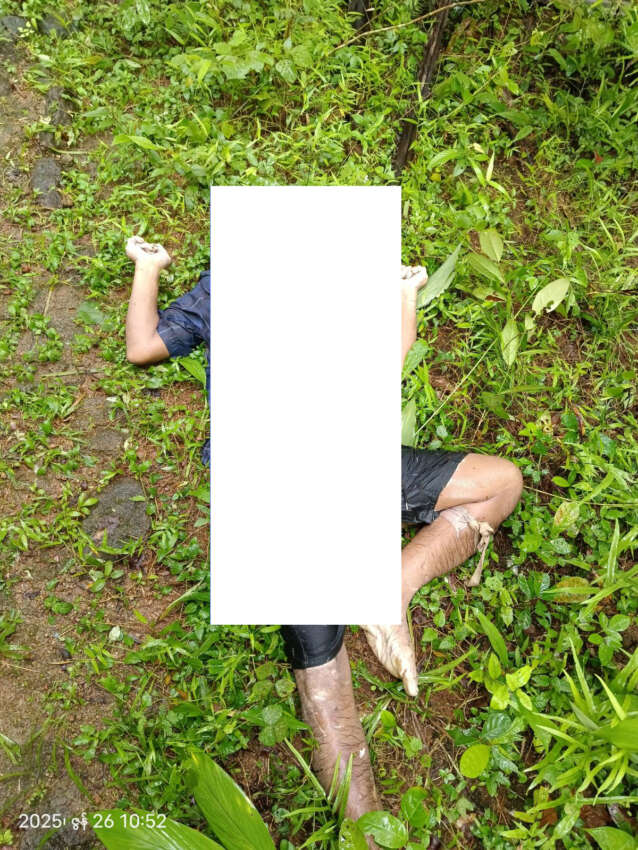
Local sources and officials from the Democracy Movement Strike Committee-Dawei have confirmed that military council soldiers committed brutal acts of violence in Kanyun Island village, Longlone Township, Tanintharyi Region, including the murder of a villager and rape of an elderly woman. On June 14, military forces from Longlone town advanced into Kanyun Island village, forcibly detaining approximately 100 civilians from surrounding villages and Kanyun Island to use as human shields during their operation. Among those detained, U Myoe Zaw Aung (also known as U Myoe Kyan Aung), age 46, was brutally killed by having his throat cut. His body was later dumped in an oil palm plantation between Sitpye village and Longlone town.
During their occupation of Kanyun Island village, a soldier identified as Phoe Chae repeatedly raped a woman in her 70s who had remained at home to care for her sick husband. The assaults occurred five times over two days, with some attacks taking place in front of her ailing husband. According to a representative from the Rose Women’s Union (Dawei), the elderly victim is now suffering severe physical and psychological trauma requiring special care. She is currently experiencing excessive bleeding and receiving medical treatment, including antibiotics and supplements, while also dealing with significant psychological distress. The victim remains fearful of the military council and requires ongoing medical attention for both her physical and mental well-being.
During their occupation of the village, the military council soldiers also burned down two houses and several motorcycles. They broke into hundreds of homes throughout the village, looting valuable possessions. The military column withdrew from Kanyun Island village back to Longlone town on June 24, and local residents discovered U Myoe Zaw Aung’s body on June 26. These acts of violence have left the local population living in fear and deeply concerned about their security. The brutal actions of the military forces have created an atmosphere of terror and uncertainty in the community, with residents worried about potential future attacks and continued human rights violations.



